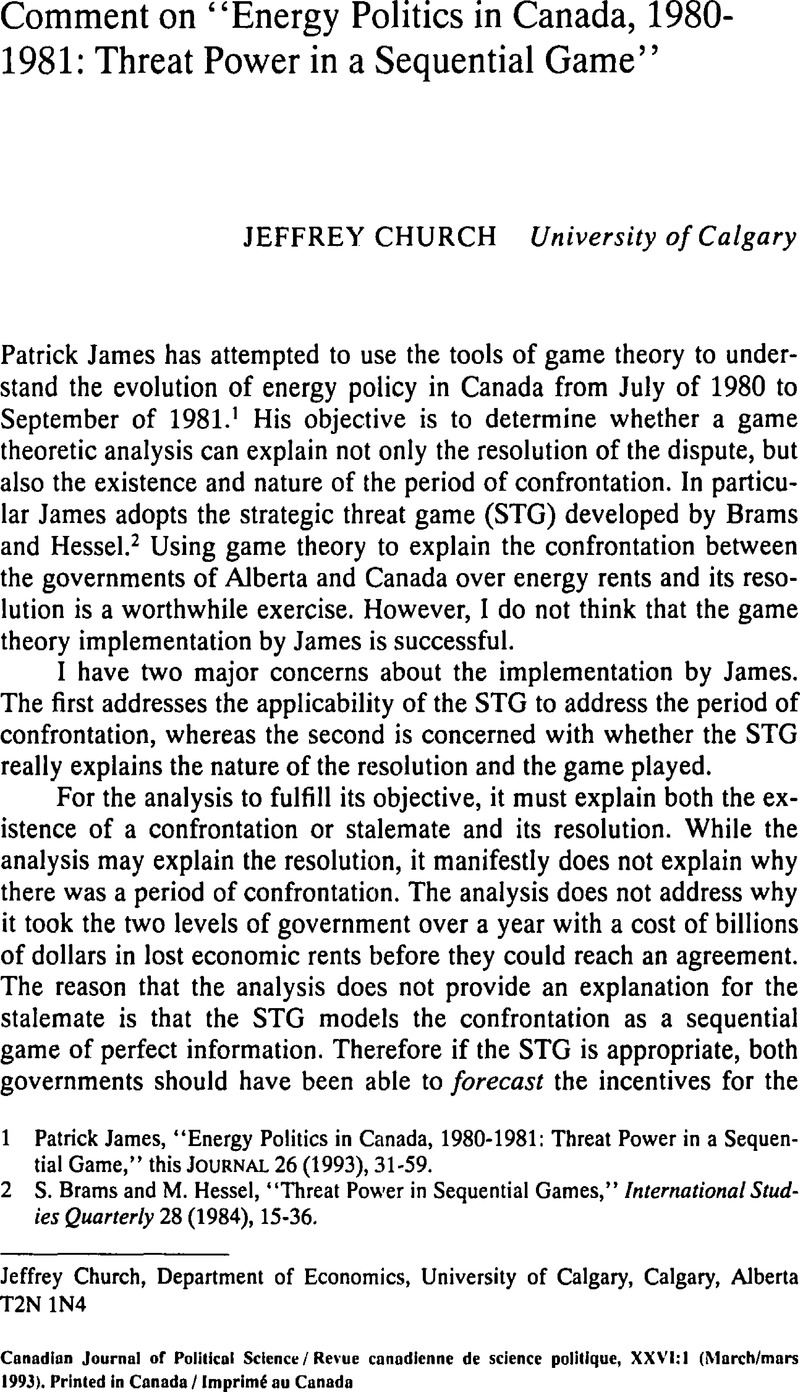No CrossRef data available.
Published online by Cambridge University Press: 10 November 2009

1 James, Patrick, “Energy Politics in Canada, 1980–1981: Threat Power in a Sequential Game,” this Journal 26 (1993), 31–59.Google Scholar
2 Brams, S. and Hessel, M., “Threat Power in Sequential Games,” International Studies Quarterly 28 (1984), 15–36.CrossRefGoogle Scholar
3 Two recent surveys are Kennan, J. and Wilson, R., “Bargaining with Private Information,” Journal of Economic LiteratureGoogle Scholar, forthcoming, and Osborne, M. and Rubinstein, A., Bargaining and Markets (Toronto: Academic Press, 1990).Google Scholar
4 For an extended non-technical discussion, see Dixit, A. and Nalebuff, B., Thinking Strategically (New York: Norton, 1992)Google Scholar, chap. 11, and for a technical discourse, Osborne, and Rubinstein, , Bargaining and MarketsGoogle Scholar, chaps. 3 and 5.
5 James, , “Energy Politics in Canada, 1980–1981,” 35, 43 and 44.Google Scholar
6 Selten, R., “The Chain-Store Paradox,” Theory and Decision 9 (1978), 127–59CrossRefGoogle Scholar; Milgrom, P. and Roberts, J., “Predation, Reputation, and Entry Deterrence,” Journal of Economic Theory 27 (1982), 280–312CrossRefGoogle Scholar; and Kreps, D. and Wilson, R., “Reputation and Imperfect Information,” Journal of Economic Theory 27 (1982), 253–79.CrossRefGoogle Scholar
7 Helliwell, J. F. and McRae, R. N., “Resolving the Energy Conflict: From the National Energy Program to the Energy Agreements,” Canadian Public Policy 8 (1982), 14–27.CrossRefGoogle Scholar
8 Ibid., 18.
9 Ibid., 22.